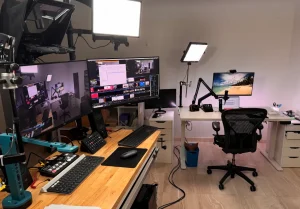Insurance for Your Remote Work Life: Protecting Your Home-Based Business
5 min read
That spare room office, the sunlit kitchen table command center—it’s more than just a workspace. It’s the heart of your livelihood. But here’s a question that often gets lost between Zoom calls and project deadlines: is your home-based business actually protected? Your homeowner’s insurance policy? It was built for a different world, a world without professional liability or business-grade equipment.
Let’s be honest, navigating insurance can feel like reading a foreign language. But ignoring it is like leaving your front door unlocked because you’re “just working from home.” The risks are real, and they’re hiding in plain sight. Let’s dive into what you need to know to sleep soundly at night.
Why Your Homeowner’s Policy Isn’t Enough
Think of your homeowner’s or renter’s insurance as a safety net for your personal life. It’s designed for couch fires, stolen jewelry, or a guest who slips on your icy porch. The moment you introduce business activities, that net develops some serious holes.
Most standard policies have strict—and surprisingly low—limits for business property. That high-end laptop, your professional camera, the specialized software… if it’s stolen or fried in a power surge, you might only be reimbursed a few thousand dollars. A real gut punch.
And liability? Well, that’s the real kicker. If a client visits your home office and trips over a rug, your homeowner’s policy may not cover their medical bills. If a freelancer accuses you of missing a deadline and sues for lost profits? You’re likely on your own. That’s a financial cliff you don’t want to peer over.
The Essential Insurance Policies for Home-Based Businesses
Okay, so what do you actually need? It’s not one-size-fits-all. The right coverage depends entirely on what you do. A graphic designer has different risks than a personal trainer who sees clients in their garage.
1. Home-Based Business Insurance
This is often the first and most logical step. It’s a rider or endorsement you can add to your existing homeowner’s policy. It’s relatively inexpensive and can provide that crucial extra layer for business equipment and some liability.
Who it’s for: Perfect for solopreneurs with minimal client foot traffic and lower-risk operations. Think writers, virtual assistants, or coders.
2. Business Owner’s Policy (BOP)
A BOP is the gold standard for many small businesses, and for good reason. It bundles two critical coverages into one neat package:
- Commercial General Liability: This is your “slip-and-fall” coverage, but for your business. It protects you if a client gets hurt at your home office or if you’re accused of causing property damage elsewhere.
- Commercial Property Insurance: This covers your business property—computers, furniture, inventory—against theft, fire, and other disasters. The limits are much, much higher than a homeowner’s policy.
Many BOPs can also include business interruption insurance, which is a lifesaver. If a fire makes your home office unusable, this coverage can replace your lost income while you get back on your feet.
Who it’s for: Just about any home-based business owner, especially consultants, coaches, and anyone who stores client data or valuable equipment.
3. Professional Liability Insurance
Also known as Errors and Omissions (E&O) insurance. This one protects your brain. If a client claims your advice, design, or service caused them a financial loss, this policy has your back. Missed a critical detail in a contract you drafted? A website you built has a security flaw that costs your client sales? Professional liability is your defense.
Who it’s for: Absolutely critical for consultants, marketers, accountants, architects, IT professionals—anyone whose primary product is their expertise.
4. Cyber Liability Insurance
This is no longer just for big corporations. If you handle any client data—names, emails, payment information—you’re a target. A cyber attack could lead to data recovery costs, regulatory fines, and even ransom demands. Cyber liability insurance helps cover these expenses and can provide experts to help you manage the crisis.
Special Considerations: Don’t Overlook These
Beyond the main policies, your specific situation might call for a closer look.
Auto Insurance for Business Use
Driving to the post office to ship products? Meeting a client for coffee? Your personal auto policy might not cover an accident that occurs during these “business errands.” A quick call to your agent to add a “business use” endorsement can close this gap. It’s a simple fix for a potentially massive problem.
Workers’ Compensation
If it’s just you, you don’t need it. But the second you hire your first employee—even part-time—most states require you to carry workers’ comp. It covers medical bills and lost wages if an employee gets injured on the job. And in a home environment, a simple accident is always a possibility.
Taking Action: How to Assess Your Needs
Feeling overwhelmed? Don’t be. You can start with a simple self-audit. Ask yourself these questions:
- What’s the total value of all my business equipment (laptop, monitor, desk, specialized tools)?
- Do clients or customers ever visit my home?
- Could a mistake in my professional work financially harm a client?
- Do I store sensitive client data (personal, financial, health-related)?
- Do I use my car for business-related tasks?
- Do I have any employees or plan to hire soon?
Your answers will paint a clear picture of your risk profile. Honestly, just going through this list is half the battle.
The world of work has fundamentally shifted. Our homes are now hubs of innovation and enterprise. Protecting that enterprise isn’t a bureaucratic chore—it’s a fundamental part of being a modern professional. It’s the quiet confidence that lets you focus on what you do best: building your dream, from the comfort of your own home.







